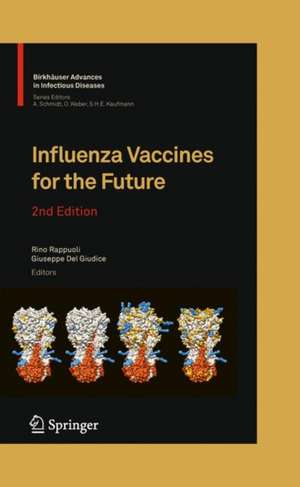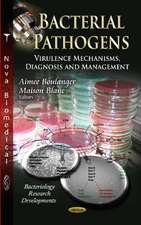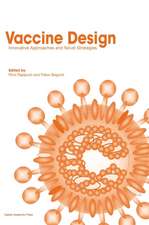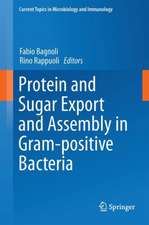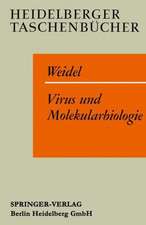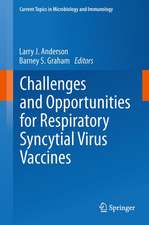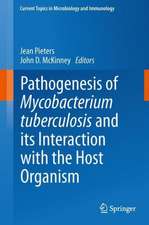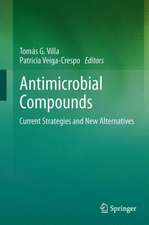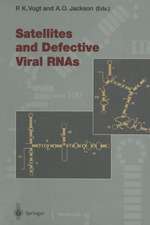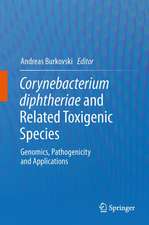Influenza Vaccines for the Future: Birkhäuser Advances in Infectious Diseases
Editat de Rino Rappuoli, Giuseppe Del Giudiceen Limba Engleză Hardback – 30 oct 2010
Toate formatele și edițiile
| Toate formatele și edițiile | Preț | Express |
|---|---|---|
| Paperback (1) | 1224.54 lei 6-8 săpt. | |
| Springer – 14 mar 2012 | 1224.54 lei 6-8 săpt. | |
| Hardback (1) | 1229.10 lei 6-8 săpt. | |
| Springer – 30 oct 2010 | 1229.10 lei 6-8 săpt. |
Din seria Birkhäuser Advances in Infectious Diseases
- 5%
 Preț: 1193.56 lei
Preț: 1193.56 lei - 5%
 Preț: 717.56 lei
Preț: 717.56 lei - 5%
 Preț: 1103.03 lei
Preț: 1103.03 lei - 5%
 Preț: 725.59 lei
Preț: 725.59 lei - 5%
 Preț: 1004.09 lei
Preț: 1004.09 lei - 18%
 Preț: 1224.54 lei
Preț: 1224.54 lei - 5%
 Preț: 776.62 lei
Preț: 776.62 lei - 5%
 Preț: 1418.83 lei
Preț: 1418.83 lei - 18%
 Preț: 950.66 lei
Preț: 950.66 lei - 5%
 Preț: 1087.31 lei
Preț: 1087.31 lei - 24%
 Preț: 890.72 lei
Preț: 890.72 lei - 5%
 Preț: 1098.99 lei
Preț: 1098.99 lei - 5%
 Preț: 729.82 lei
Preț: 729.82 lei - 5%
 Preț: 726.52 lei
Preț: 726.52 lei - 5%
 Preț: 1425.97 lei
Preț: 1425.97 lei - 5%
 Preț: 1126.45 lei
Preț: 1126.45 lei
Preț: 1229.10 lei
Preț vechi: 1498.90 lei
-18% Nou
Puncte Express: 1844
Preț estimativ în valută:
235.26€ • 255.63$ • 197.75£
235.26€ • 255.63$ • 197.75£
Carte tipărită la comandă
Livrare economică 22 aprilie-06 mai
Preluare comenzi: 021 569.72.76
Specificații
ISBN-13: 9783034602785
ISBN-10: 3034602782
Pagini: 440
Ilustrații: XIV, 446 p. 70 illus., 30 illus. in color.
Dimensiuni: 155 x 235 x 35 mm
Greutate: 0.77 kg
Ediția:2nd ed. 2011
Editura: Springer
Colecția Springer
Seria Birkhäuser Advances in Infectious Diseases
Locul publicării:Basel, Switzerland
ISBN-10: 3034602782
Pagini: 440
Ilustrații: XIV, 446 p. 70 illus., 30 illus. in color.
Dimensiuni: 155 x 235 x 35 mm
Greutate: 0.77 kg
Ediția:2nd ed. 2011
Editura: Springer
Colecția Springer
Seria Birkhäuser Advances in Infectious Diseases
Locul publicării:Basel, Switzerland
Public țintă
ResearchCuprins
EVOLUTION AND EPIDEMIOLOGY.- Influenza Virus: The Biology of a Changing Virus.- The Epidemiology of Influenza and its Control.- Epidemiology of Influenza in Tropical and Sub-Tropical Low Income Regions.- The Origin and Evolution of H1N1 Pandemic Influenza Viruses.- The Emergence of 2009 H1N1 Pandemic Influenza.- IMMUNITY AND VACCINE STRATEGIES.- Influenza Vaccines have Short but Illustrious History of Dedicated Science Enabling the Rapid Global Production of A/Swine (H1N1) Vaccine in the Current Pandemic.- Influenza and Influenza Vaccination in Children.- The Immune Response to Influenza A Viruses.- Correlates of Protection Against Influenza.- The Role of Animal Models in Influenza Vaccine Research.- Live Attenuated Influenza Vaccine.- Cell Culture-Derived Influenza Vaccines.- Conserved Internal Proteins as Potential Universal Vaccines.- Adjuvants for Influenza Vaccines: The Role of Oil-in-Water Adjuvants.- Lesson Learned from Clinical Trials in 1976 and 1977 with Vaccines for the Newly Emerged Swine and Russian Influenza A/H1N1 Viruses.- Human Monoclonal Antibodies for Prophylaxis and Treatment of Influenza.- ECONOMIC AND SOCIAL IMPLICATIONS.- Learning from the First Pandemic of the 21st Century.- Economic Implications of Influenza and Influenza Vaccine.
Recenzii
From the reviews of the second edition:
“What the book delivered was a curious juxtaposition of historical perspective alongside a modern commercial approach: from what went wrong in the swine flu vaccination incident of 1976 in the USA, to which companies are using M2 protein conjugates. … This type of information is quite hard to glean from the academic literature. It was also great to get solid information about the state of the art today … . Overall there is some useful detail in this book that is hard to get elsewhere.” (Wendy Barclay, Microbiology Today, May, 2011)
“What the book delivered was a curious juxtaposition of historical perspective alongside a modern commercial approach: from what went wrong in the swine flu vaccination incident of 1976 in the USA, to which companies are using M2 protein conjugates. … This type of information is quite hard to glean from the academic literature. It was also great to get solid information about the state of the art today … . Overall there is some useful detail in this book that is hard to get elsewhere.” (Wendy Barclay, Microbiology Today, May, 2011)
Textul de pe ultima copertă
The emergence of H5N1 avian influenza in 1997 and of the influenza A H1N1 of swine origin in 2009 calls for new, rapid and sustainable solutions for both seasonal and pandemic influenza viruses. During the last ten years, science and technology have made enormous progress, and we are now able to monitor in real time the genetics of viruses while they spread globally, to make more powerful vaccines using novel adjuvants, and to generate viruses in the laboratory using reverse genetics. This volume not only provides state-of-the-art information on the biology of influenza viruses and on influenza vaccines, but is also designed to be a resource to face the present H1N1 pandemic and to plan for long-term global and sustainable solutions.
Caracteristici
Presents new vaccination strategies in the light of the most recent outbreak Presents a thorough discussion on immune response and correlates of protection Provides an overview of epidemiology and the control of influenza Includes supplementary material: sn.pub/extras
